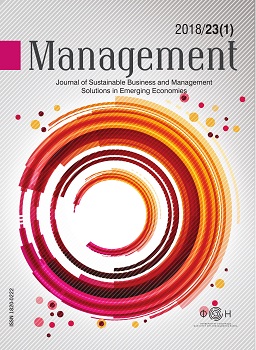Research on Scholarship Holders who Studied Abroad and Returned to Serbia
Research on Scholarship Holders who Studied Abroad and Returned to Serbia
Author(s): Nena A. Vasojević, Snežana Kirin, Predrag J. MarkovićSubject(s): Sociology of Education
Published by: Fakultet organizacionih nauka Univerziteta u Beogradu (FON)
Keywords: scholarship holders; motives for going abroad; motives for return; application of knowledge; job satisfaction
Summary/Abstract: Knowledge has become the most valuable resource of the new era and the resource of the future. The intention of this study is to improve knowledge about the problem of migration of educated people from Serbia from the perspective of scholarship holders who, after spending some time abroad, returned to their country. The aim of this research is to show the profile of the scholarship holders of post-academic and post-graduate students, who studied abroad and then returned to Serbia. Their motives for departure and return, as well as their perception of integration into the work environment in Serbia and utilization of their knowledge is presented. Methods: For the purpose of this research a questionnaire was constructed which was distributed online. Collected data were analysed using statistical tools. Results: This research has shown that the primary motive for education abroad is the desire for personal development. It has also been shown that an important factor for the return of students from abroad is their expectation of comparative advantage in the labour market and their belief that they will be able to get a desired job. Apart from this, it is shown that the scholarship holders only partially use the acquired knowledge and thus do not have enough influence on the development of their organizations.Conclusion: The main research contribution is reflected in the improvement of the knowledge about the motivation of scholars to return from developed countries and in highlighting the problems scholarship holders have on coming home. Implications and research limitations: The results obtained can be generalised to countries that are undergoing or have recently commenced a transition, and are similar in cultural characteristics. The present contains certain limitations that must be taken into account while interpreting final results. The most significant constraint is the sample size, but the obtained results, especially the motives of the scientific experts for returning to this country, are extremely important and can be considered the starting basis for further research.
Journal: Management: Journal of Sustainable Business and Management Solutions in Emerging Economies
- Issue Year: 23/2018
- Issue No: 1
- Page Range: 23-32
- Page Count: 10
- Language: English

